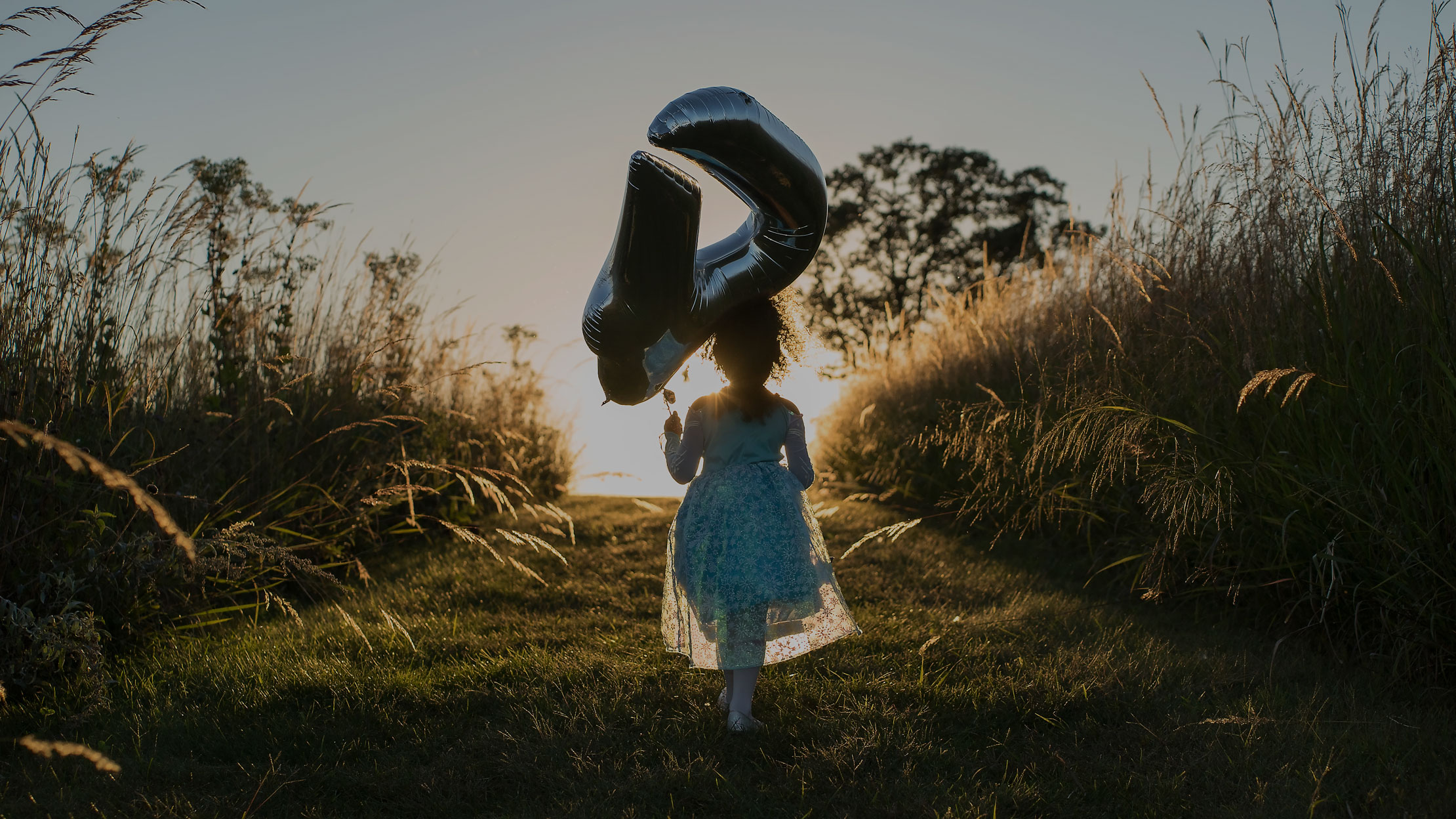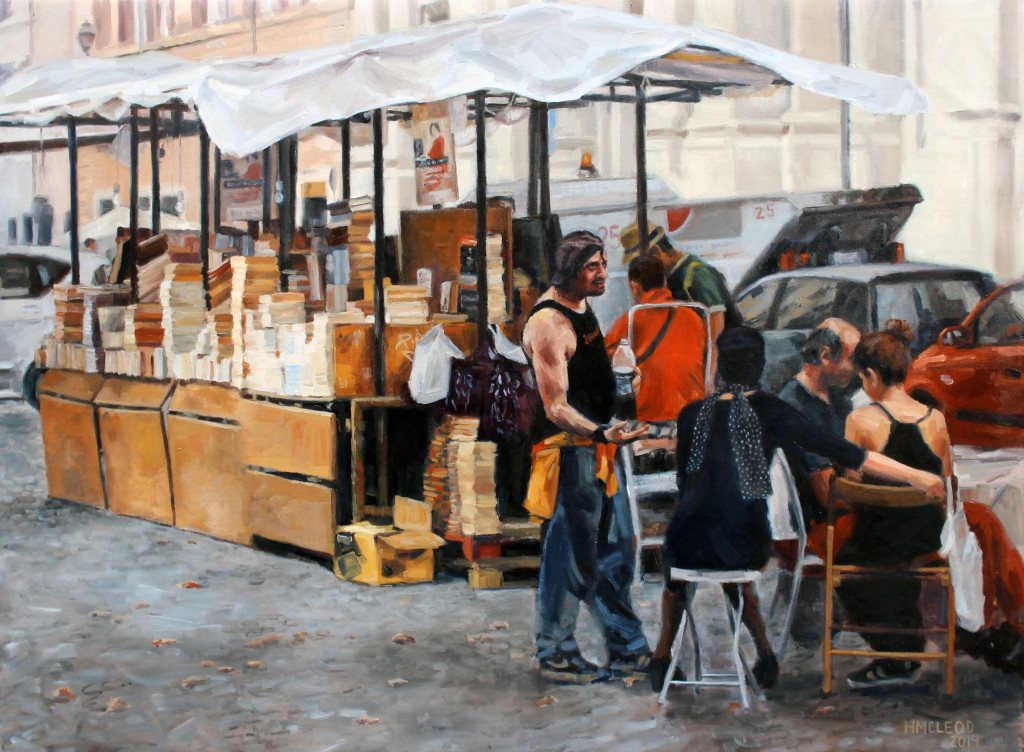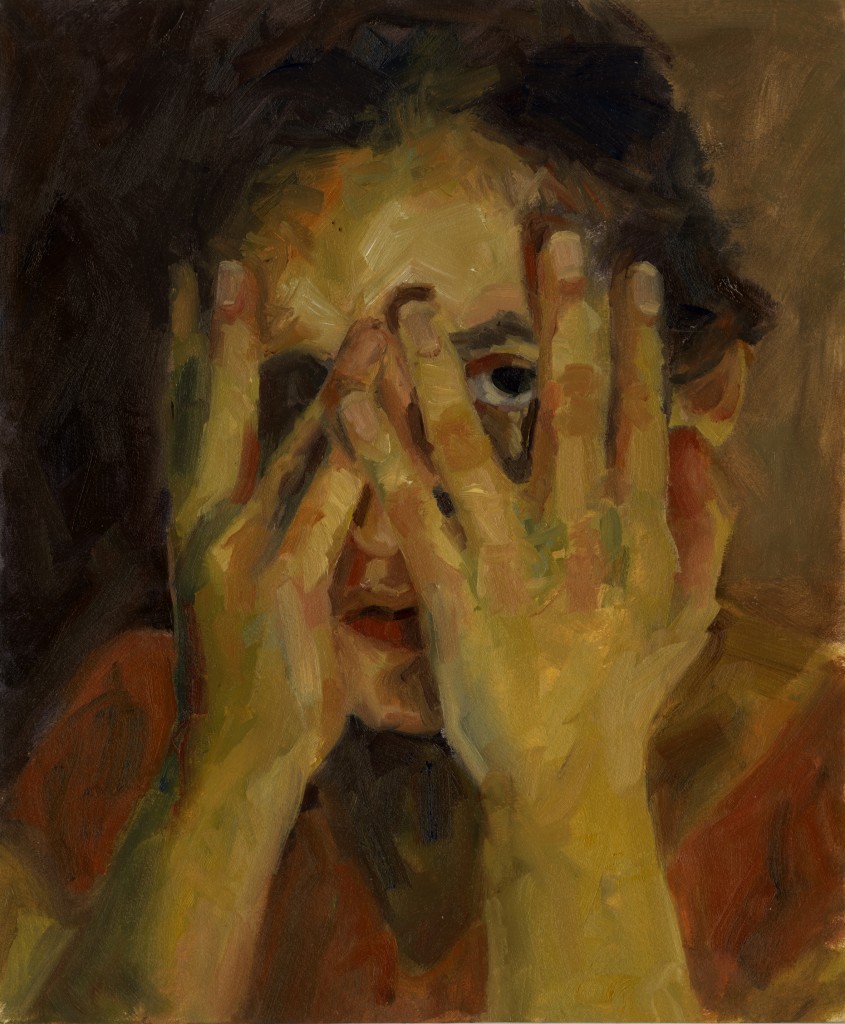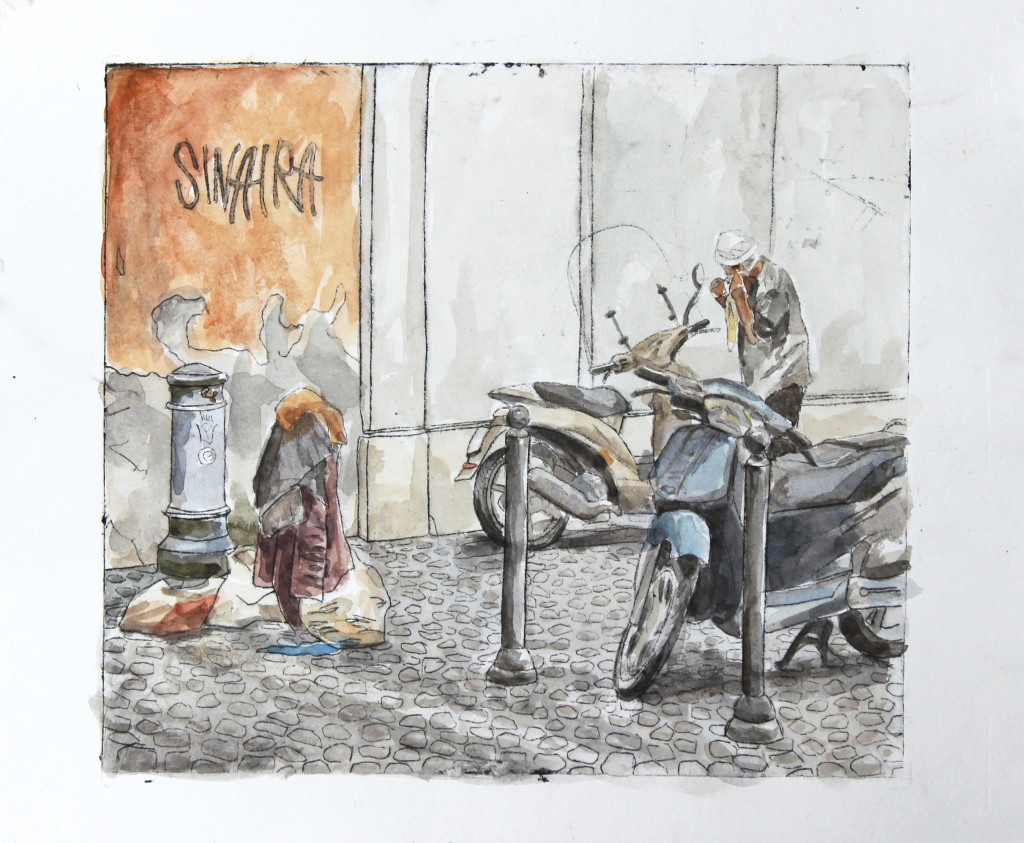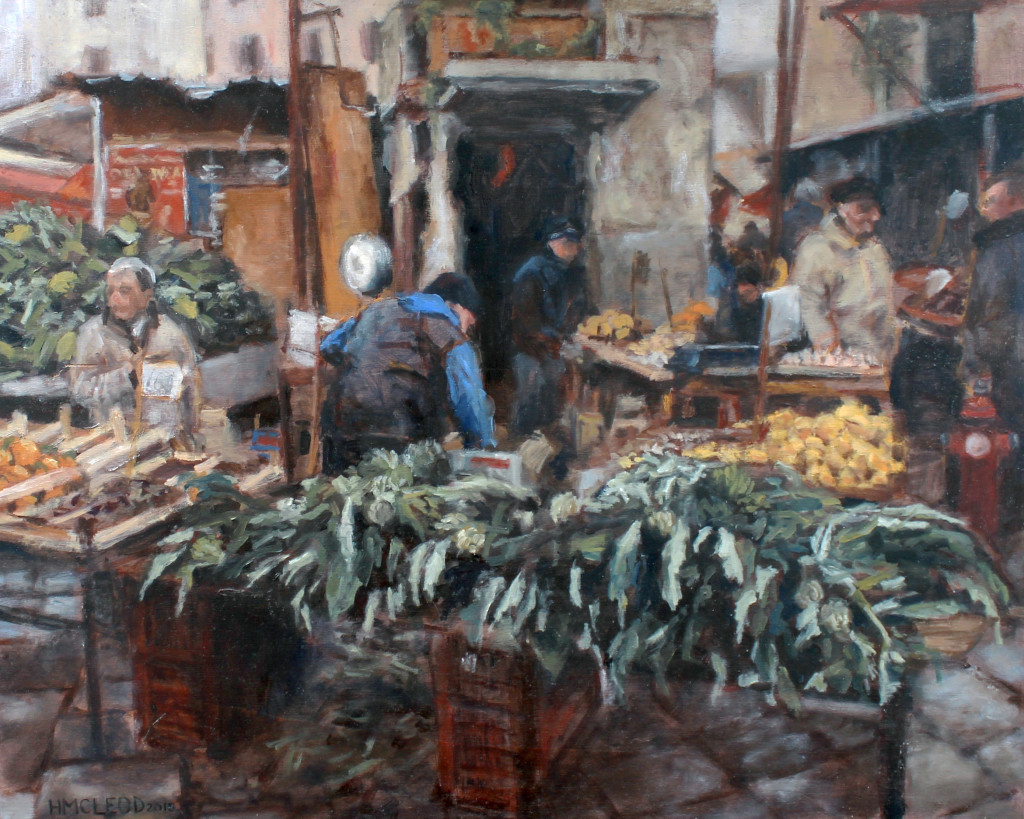Heather McLeod
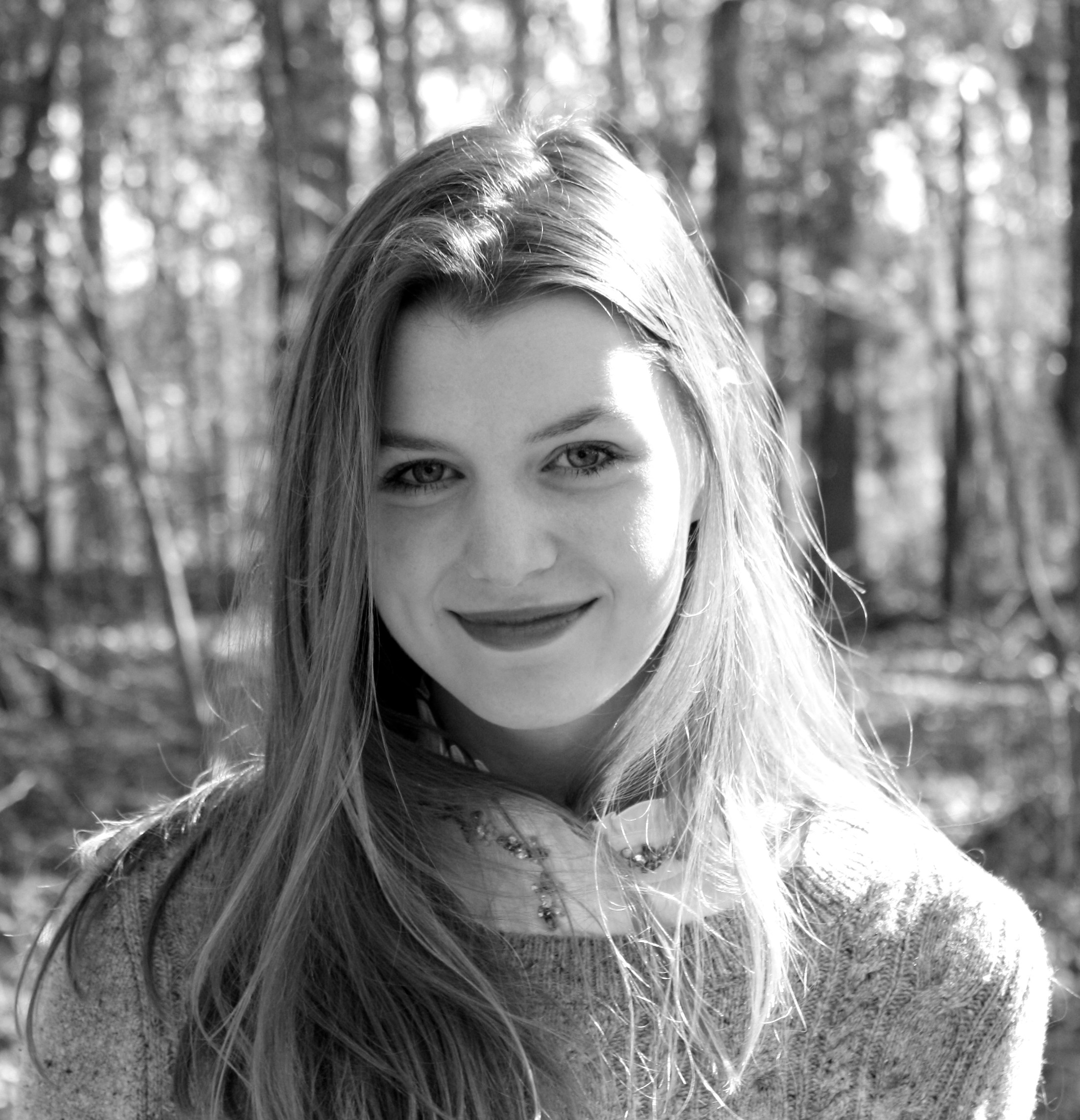
Who are you and what do you do?
My name is Heather McLeod and I am currently a senior studying Illustration at Rhode Island School of Design. As a full-time student I spend most of time doing school assignments, but either incorporated into the assignments or on my own time, I always try to find the time to paint.
What is your favorite medium?
I absolutely love oil painting and have been painting in this medium for years. I most often choose to paint human figures and portraits and oil has a way of mimicking human flesh that I find incomparable to any other medium. Although I would say oil paint is my primary method of working, I recently started dappling in printmaking, encaustic and paper cut-outs.
Where do you draw your inspiration from?
I draw most of my inspiration from the world around me. I enjoy depicting daily life especially in my paintings and therefore I am constantly looking around and seeing color relationships and framing compositions. I realized I was really becoming a painter when sitting in a philosophy class a few years ago, noticing how the professor’s head glowed against the black ground of the blackboard and how beautifully that could be transformed into a portrait. I am also constantly searching for artists and scroll through artwork on sites like Behance–saving them into folders when something about them speaks to me.
What is your creative process?
I am different than most artists in the way that I don’t enjoy doing a lot of preparatory work. Of course there are instances when I need to do sketches and studies to work out issues before working on the final piece, but usually I like to jump right into working at the moment of inspiration.
Is there a specific theme/message/emotion you aim to evoke?
I always try to speak to the viewer in some respect, however the message could be very different depending on the painting or project. The theme is usually subtle, but even in pieces like portraiture, where a theme is seemingly absent, there is always something that can be interpreted through the lighting, position of the figure or my favorite aspect: the facial expression.
What motivates you to continue to create?
I continue to create because it gives me this high that I can’t compare to anything else. It’s almost like when I used to read a really good book and feel the need to carry it around with me just to remind myself of the world I had just entered. In a way, I enter this other world when I paint and no matter what mood I was in when I first sat down to work, I wind up leaving with a smile I can’t seem to shake.
When you encounter creative blocks, what do you do to overcome them?
When I encounter creative blocks I tend to simply move on. When you struggle with a painting I think it tends to show and sometimes that can look great. But other times it simply looks like a struggle. When this is the case, I find another project to work on and return to it later when I’ve solved other problems and feel confident in my work again.
What are your thoughts on the future of art?
Looking back on how art has changed over the years, I definitely expect more extreme changes to occur. I believe it’s difficult to anticipate exactly what will happen because we haven’t seen it yet, but change is inevitable. I’m sure when Rembrandt was painting “The Night Watch” he couldn’t even conceive the idea of Duchamp’s “Fountain” drawing throngs of visitors into a museum. Sometimes I worry that art is moving in a direction so far from the traditional painting techniques that I find so inspiring. But I do believe that there will always be a place for the works of Sargent and Degas because no matter how different things stray, people always return to the classics.
What is something you have had to learn on your own that you would like to pass on to the next Creative?
I’ve had to learn a lot of important lessons on my own, but among one of the most important is to publicize your work. I tend to stray away from online work, but many of the opportunities I’ve experienced lately have been the result of publishing my work online. I sometimes feel that once you start putting your work all over the Internet you lose control of it, but I’m starting to realize that might be precisely what an artist needs.
